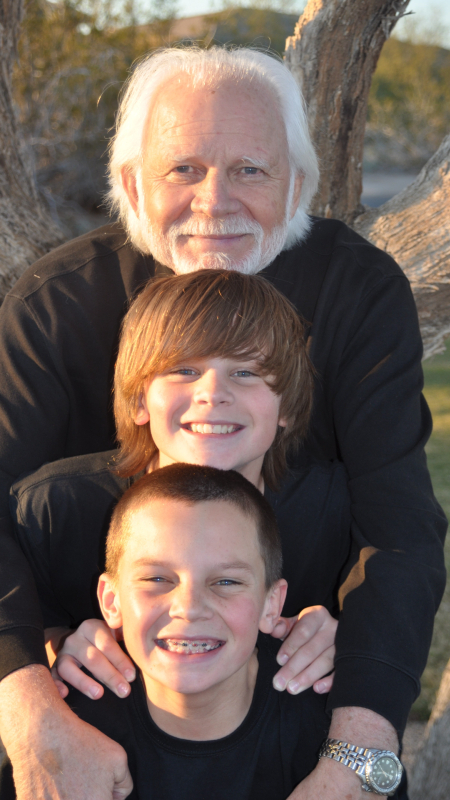Pro Football Hall of Famer Ken Stabler was a National Champion in college and earned both a Super Bowl ring and league MVP honors in the NFL. Stabler played collegiate football for the University of Alabama and was drafted in the second round of the 1968 NFL draft by the Oakland Raiders. Stabler retired after 15 years in the NFL and became a decorated sports analyst.
As Stabler got older, he became confused, suffered from debilitating headaches, and lost his executive functioning skills. Stabler passed away from colon cancer in 2015 at the age of 69. After his death, researchers at the UNITE Brain Bank determined he had stage 3 (of 4) Chronic Traumatic Encephalopathy (CTE).
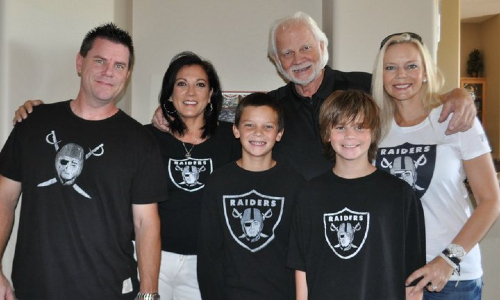
The full NFL story cannot be told without Ken ‘Snake’ Stabler. Some of the greatest moments of the 1970s included this football legend. After his death in July 2015, Ken Stabler was posthumously inducted in the Pro Football Hall of Fame in 2016.
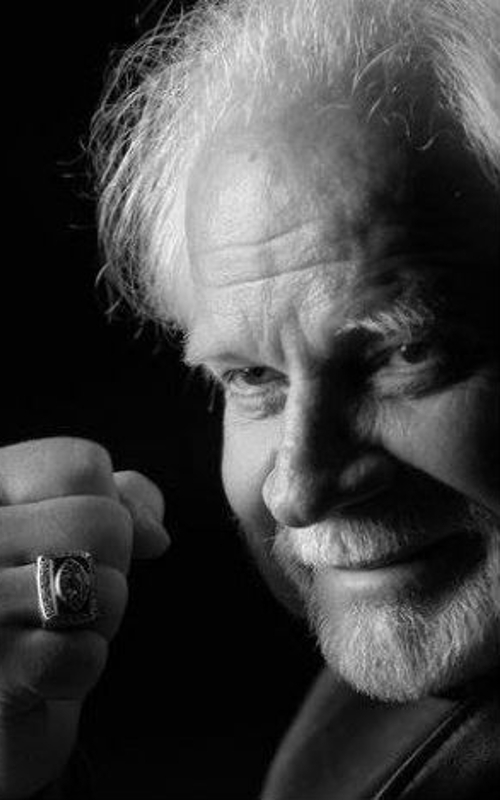
Stabler was a stand out when he played college football for the University of Alabama under the tutelage of legendary Coach Paul “Bear” Bryant. He earned a National Championship ring with the Tide and in his senior year lead his team to a stunning 11-0 record, winning the Sugar Bowl where Stabler was selected as MVP.
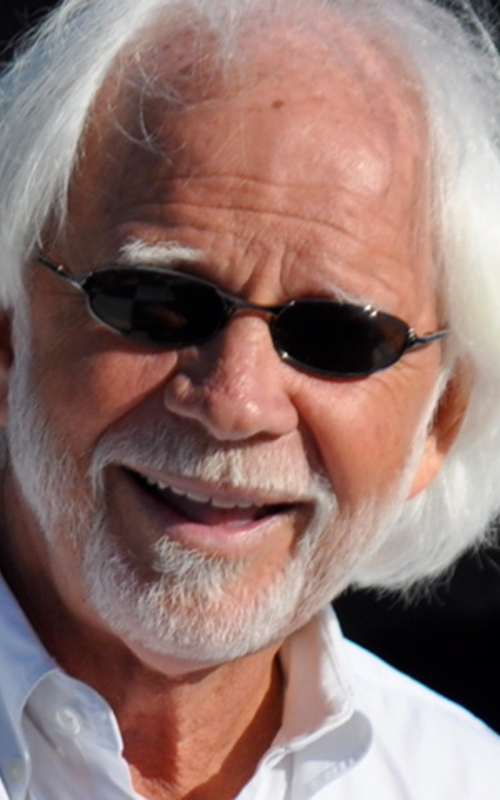
Stabler was drafted in the second round of the 1968 NFL Draft by the Oakland Raiders. Stabler first attracted attention in the NFL in a 1972 playoff game against the Pittsburgh Steelers. After entering the game in relief of Daryle Lamonica, he scored the go-ahead touchdown late in the fourth quarter on a 30-yard scramble. The Steelers, however, came back to win on a controversial, deflected pass from Terry Bradshaw to Franco Harris, known in football lore as the Immaculate Reception. He also orchestrated other iconic plays; “Ghost to the Post”, “Sea of Hands” and the “Holy Roller.” Stabler had a remarkable 15-year career in the NFL and spent a decade with Hall of Fame owner Al Davis’ Silver & Black.
During his 10-year career with the Oakland Raiders, Stabler was the 1974 NFL MVP, made the Pro Bowl four times, was the NFL’s leader in touchdown passes twice, and earned a Super Bowl ring with a win over the Minnesota Vikings in Super Bowl XI. He also spent time with the Houston Oilers and New Orleans Saints during his playing days.
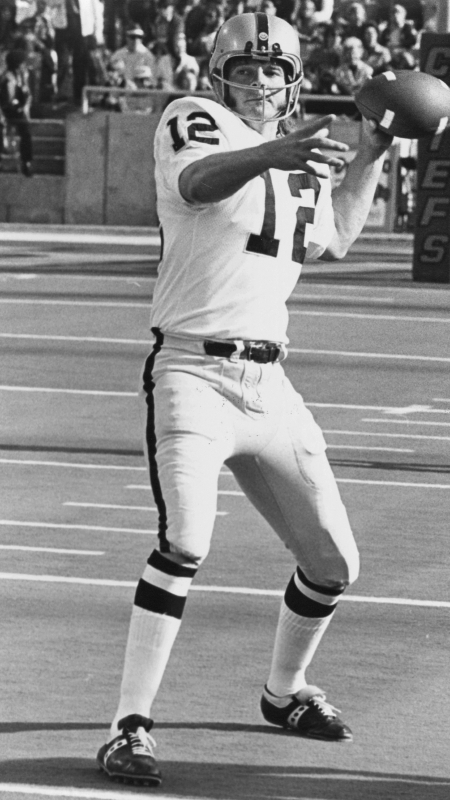
A remarkable career on the field and a remarkable man off the field, Stabler lived life to the fullest. He went on to entertain his legions of fans as a sports analyst for CBS, Turner Sports Network and for the University of Alabama’s Crimson Tide Sports Network. He also was a highly sought after public speaker and spokesman for various national and regional brands and corporations.
But the job Stabler coveted most was definitely that of being a Father. His greatest joy in life came in the gift of three beautiful daughters whom he adored; Kendra, Alexa and Marissa. And in 1998 when Kendra gave birth to twin sons, Jack and Justin, Stabler became Papa Snake and found glory in the best position ever, that of Grandfather.
I was Ken Stabler’s partner the last sixteen and a half years of his life, or as I like to say, I played the fourth quarter with him and we won. Even though my life with Ken had nothing to do with the game of football there were parallels you could not deny; he was a fierce competitor, a leader and a victor in his campaigns to help those in need. Whether it be the $600,000 he raised through his celebrity golf tournaments to build the Ronald McDonald House in Mobile, Alabama or his contributions to Cystic Fibrosis of Alabama, the American Heart Association, the American Cancer Society and many other non-profits, he was there to lead the way and battle the cause presented. Stabler founded the XOXO Stabler Foundation, a 501(c)3, in 2003 to raise funds for various causes. Upon his death we have decided that the battle we must continue to wage a war against is that of traumatic brain injury caused by contact sports.
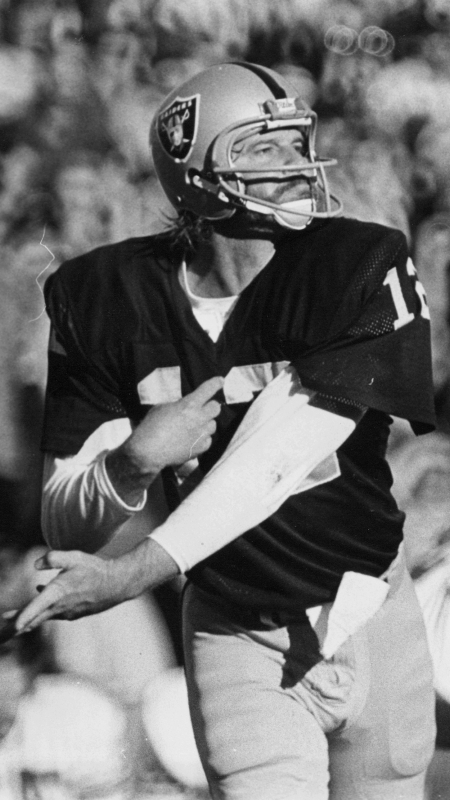
In my opinion, Ken may have eluded the worst of CTE. The beast of colon cancer trumped the impending perils of CTE. After interviewing his daughters and me, Dr. Ann McKee concluded that Ken must have done a “great job compensating for the level of brain damage” he sustained and what is now clearly documented.
His story may be different than most. Ken was of clear and present mind the day he walked into the hospital only to die of complications from the cancer that took his life five months after being discovered. We did see signs of what was to come and undoubtedly the CTE would have progressed to the point of robbing him of his mind.
His daughters, grandsons and I witnessed changes in Ken that were increasingly becoming more obvious. Kendra and I noticed him often repeating himself and he was sometimes confused at stop lights and four way stop signs. He had chronic headaches that went on for days, he described them to be like constant thunderous collisions in his head. The never-ending high pitched sound of tinnitus that simmered all day and night, making it difficult to sleep. He often would look at me and say, “bang, bang, bang” nodding his head all the while trying to explain the noise that just would not go away. He grinded his teeth to the point that he destroyed a bridge in his mouth. When sound and light continued to cause discomfort, he slowly surrendered some of the things he enjoyed the most; his love of music, the volume of sports and CNN. Even the simple day-to-day rituals of me cooking a meal would force him to leave the room and seek shelter in some place of quiet that never quite existed.
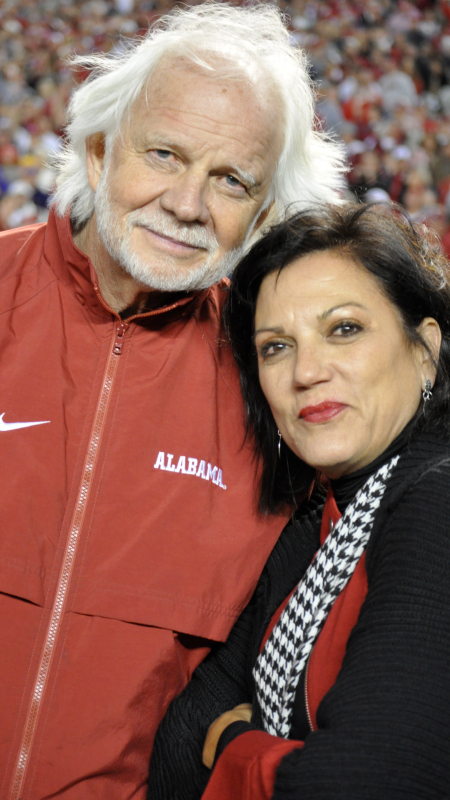
As deeply as we miss him in our lives, I think we would all agree that he had lived a great life, and when the clock finally stopped, maybe he had been as elusive with CTE as he had been on the field where he achieved such greatness. He will forever be missed in the lives of all who loved him and the millions of fans who cheered for him on Sundays. His light shines bright and it always will.
